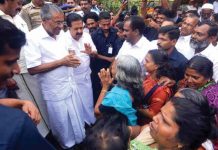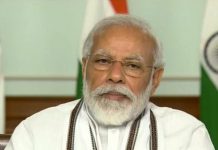India is touted as one of the world’s fastest growing economies, with a robust middle class whose talent meets the best global benchmarks. With China, India is believed to be on an upward trajectory to be one of the world’s most powerful nations in a couple of decades. What do you think?
As the late Cambridge economist, Joan Robinson, famously said: “Whatever you can rightly say about India, the opposite is also true.” Both economies are slowing down, but even before the onset of the 2008 recession, the robustness of the new middle classes in both countries was overrated. That they have grown is indisputable, but the disparities of wealth in both countries are huge. China is more unequal than the United States in this regard and, as the Dutch scholar Jan Breman has written in numerous books and essays, the statistics paraded by the global institutions of capital are both exaggerated and don’t take into account a number of indices that make for more sombre reading. Statistics related to the huge informal sector can be easily misread and misinterpreted. A repetition of the development of capitalism in Northern Europe and the creation of a new urban order is extremely unlikely in India and there are too many imponderables in China. Effectively what we are witnessing is huge reserve armies of unemployed and semi-employed labour who leave the land, return to it and travel [again] to find jobs wherever they can, and this circular internal migration fragments their lives, their class locations, their ability to fight for improvements, etc.
Let us turn to Pakistan, which will vote for a new government this month. The elections are considered historic because a popularly elected government has completed a full five-year term for the first ever time since its founding in 1947. How does this augur for Pakistan’s democracy?
Not accurate. Zulfiqar Ali Bhutto’s government had also completed its first term in office from 1972-77. Then General Zia-ul-Haq struck to prevent a second term. The fact that there is an election due is not a big deal as such. The question is will the power of the two rival money-making machines, Zardari’s PPP and the Sharif Brothers’ Muslim League, be broken or will the latter simply replace the former? If so nothing will change. A dark horse exists in the shape of Imran Khan’s PTI (Pakistan Tehrik-e-Insaf party) which does promise change. If this party emerges as the single largest or second-largest then a new space might open up in Pakistan. We shall see. One huge difference between India and Pakistan is that Pakistani TV channels are light years ahead in discussing serious political issue and the debates taking place are educating the public. That is a huge plus for the democratic process. In India all the mainstream channels appear to be produced and fronted by airheads for airheads.
Former Pakistan president and military ruler Pervez Musharraf has been arrested. Reports say the Pakistan army may not be happy with the way the judiciary is moving on Musharraf. Do you think the army in Pakistan has weakened from the five-year civilian rule? Do you think democratic impulses have finally relegated the generals to the background as happened in Turkey?
The Army advised Musharraf not to play politics. He refused and got what he deserved. His sycophants should not have been trusted. It’s not democratic impulses but the United States that have kept the Army in the background in Turkey and Pakistan. They are not in favour of military rule in the present situation.
Since January 2002 when Musharraf, under US pressure banned a clutch of terror outfits, Pakistan has fought a full-scale war against militancy. Has state sponsorship of terrorist groups finally ended in Pakistan? Or do you see a re-emergence of that connection once the US-led security forces withdraw from Afghanistan?
Difficult to say. A NATO withdrawal from Afghanistan would certainly help. The reason why the Pakistan Army has not launched a frontal offensive against these groups is linked to Afghanistan. They might still need them. Once that is over there are no excuses. The ISI knows perfectly well who these guys are and how they operate.
You have reported from and written on Bangladesh extensively for decades. How do you assess the recent protests against the Jamaat-e-Islami for its role in attempts to suppress the liberation movement until 1971?
I have not written on Bangladesh for a very long time. The protests are perfectly understandable and commendable but due legal processes must be followed. No lynchings. And the question arises as to why the protests are restricted to the Jamaatis. After all, major Maoist currents also operated in the same way and helped the Pakistan Army (this was China’s position at that time).













